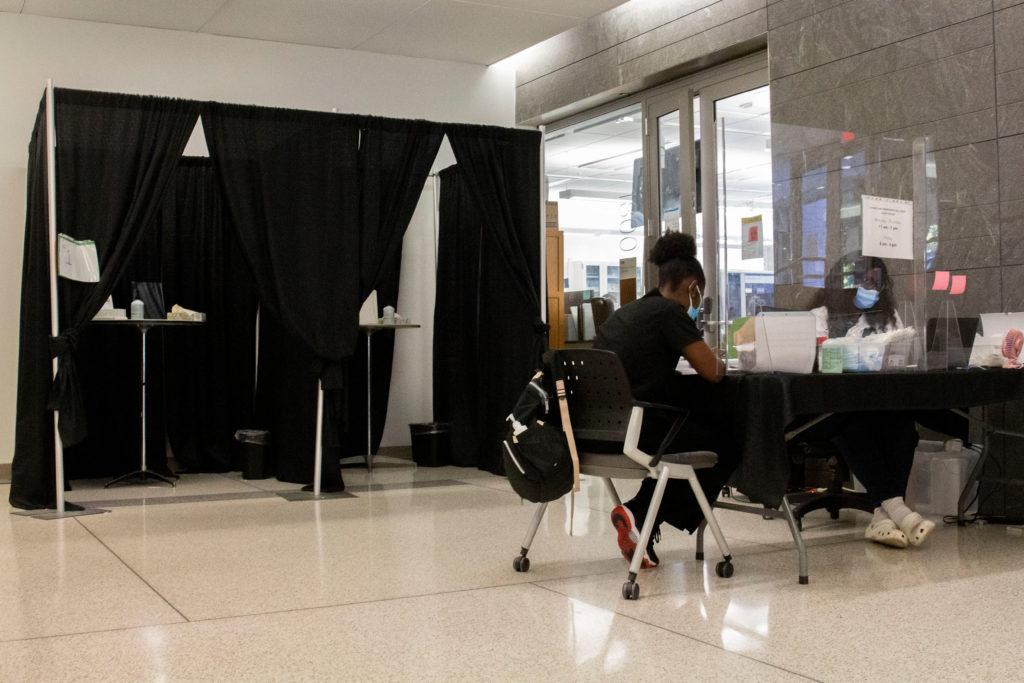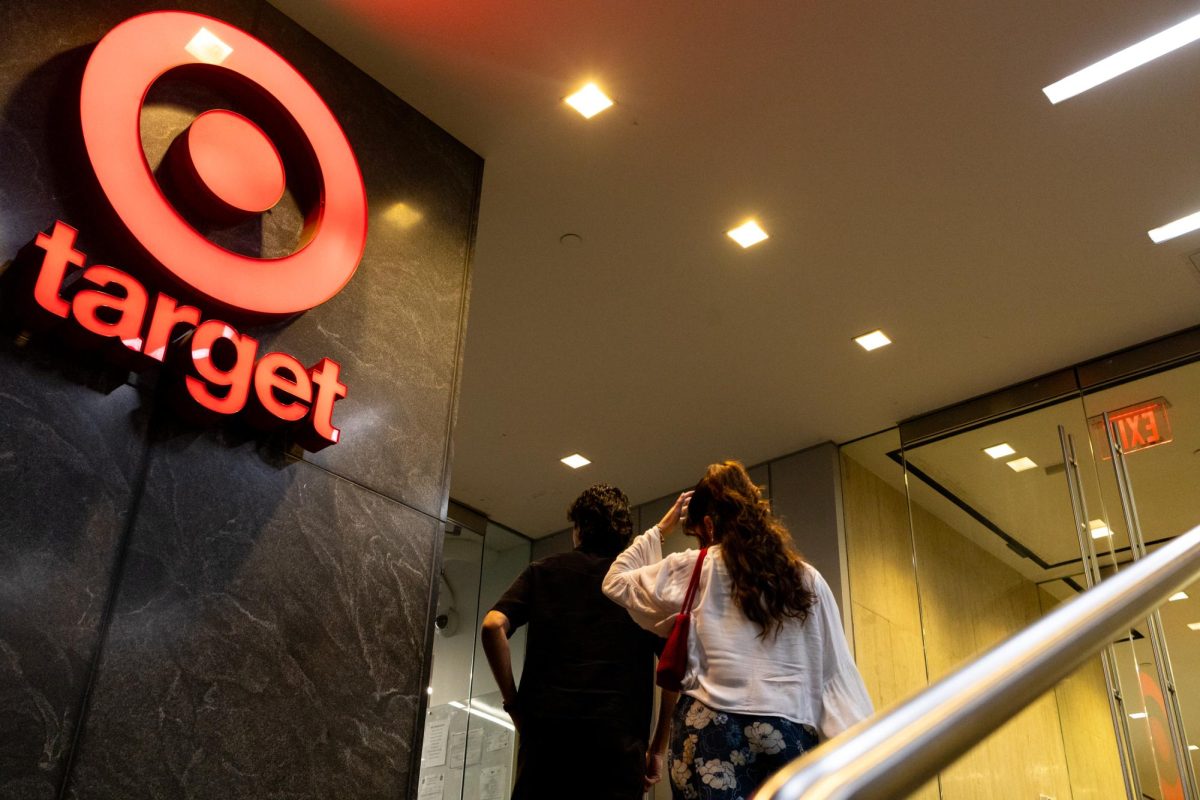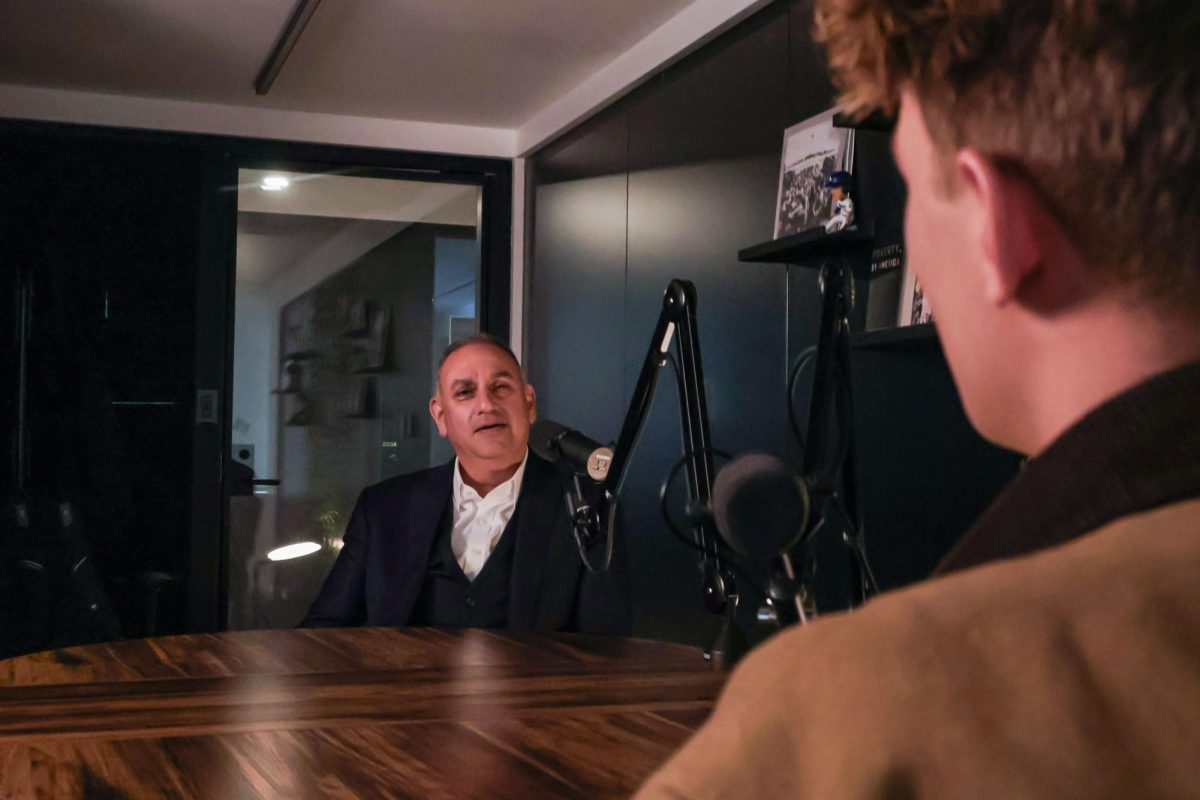With GW’s COVID-19 testing requirement now lifted, students who face a high risk of serious infection are urging their peers to keep getting tested to protect those left even more vulnerable with looser case monitoring on campus.
Officials ended the asymptomatic testing requirement last month after enforcing the biweekly testing policy for two years during the pandemic, but optional symptomatic and asymptomatic testing remain available. More than 10 students said they would no longer test biweekly and will instead turn to testing on an as-needed basis, but high-risk and disabled students are concerned the lifted requirement will allow asymptomatic cases to go unnoticed.
Lauren Wall, a second-year graduate student studying public health and the Disabled Student Collective’s communications director, said dropping the testing requirement is a “reckless” decision, and several high-risk members of the DSC – including herself – will study remotely both on and off campus during the upcoming semester as they assess the risk of infection on campus.
Wall said she and other high-risk students stuck with remote learning since in-person teaching resumed last year, but the lifted testing requirement was a factor in her decision to continue doing so this fall.
“We can’t infer how things are going because not everyone is going to be testing,” Wall said. “So there could be a huge influx of cases, and we wouldn’t know or be able to do further things to protect ourselves.”
She said students looking to receive a remote learning accommodation first apply through GW Disability Support Services and wait for their request to be approved or denied. She said once the request is approved, students receive a letter from DSS detailing their accommodations to pass on to their professors.
Wall said she was surprised and disappointed to hear about the relaxation of the testing requirement because the dropped policy could expose high-risk students to asymptomatic cases and increase the rate of case transmission across campus.
“The community monitoring and making sure everybody gets tested every two weeks helps weed out asymptomatic carriers, which can spread in the community,” she said. “If that’s not happening and people don’t have a reason to get tested if they feel fine, they could still be spreading the virus to other people.”
Madison Jennings – a first-year graduate student studying public policy and the president of the Disabled Students Collective – said relaxing the testing policy could lead to an uptick in cases that could harm high-risk students, pushing some toward remote learning and away from on-campus activities during the upcoming semester.
“I just feel like it’s a complete disregard of the real risk that is still present for universities, particularly groups of disabled students,” Jennings said. “If they’re wanting to push more in person, then disabled students are going to continue to be cut out of things, not necessarily by their own doing but for the protection of their own health and safety.”
Jennings said the DSC is currently advising high-risk students on how to navigate remote learning, where to find on-campus testing and how to advocate for their own needs to professors and peers.
She said the organization applied for an on-campus office space last spring to provide disabled students with more COVID resources, like N95 masks, but members are still waiting to hear back from the University.
“When you’re faced with that sort of situation and being high-risk, what else can you do besides avoid everyone?” Jennings said. “And that’s not exactly a healthy way to go throughout college – to completely isolate yourself when you’re going through stressful academics or social situations.”
Shayna Druckman, a senior studying human services and social justice, said she was surprised to hear officials dropped the testing requirement before students returned to campus this semester. She said as an immunocompromised student at risk for a serious COVID-19 infection, she still hopes officials provide consistent updates of the current state of positive cases on campus.
“I figured usually GW errs on the side of caution, so I thought, ‘Maybe it’s a good thing and means we’re in a good place,’” Druckman said.
The University’s positivity rate is currently about 7.2 percent from Aug. 10 to Aug. 18, according to the COVID-19 dashboard. The dashboard reports 119 positive cases out of 1,560 tests taken over two weeks with a high of 23 positive tests on Aug. 16.
Druckman said she plans to continue studying in University spaces like the University Student Center and Kogan Plaza while wearing her mask to keep herself safe. She said she will aim to get tested once per month during the upcoming semester.
“I’m immunocompromised, so I’m always happy to have a little extra protection, especially when I’m around other students,” Druckman said.
Rayene Ait, a junior studying business, said she would have preferred officials to relax the mask mandate before easing the testing requirement so the University could have gauged the level of transmission without masks. She said she trusts that officials have consulted with doctors and experts to come to the decision to ease the testing requirement.
“I guess I trust their judgement,” Ait said. “They have all of the information at their hands, so if they think it’s the right decision, then I guess it is.”
Nikki Ghaemi contributed reporting.








